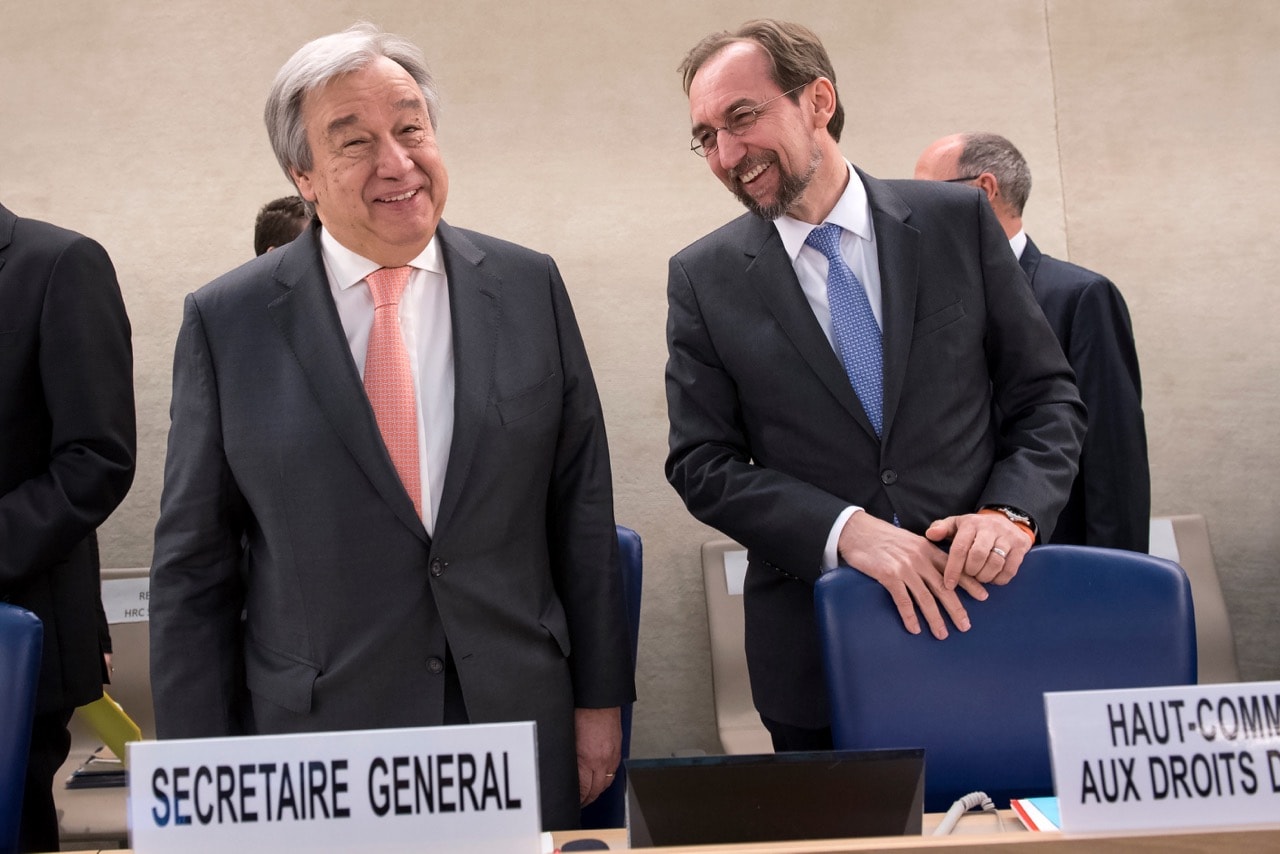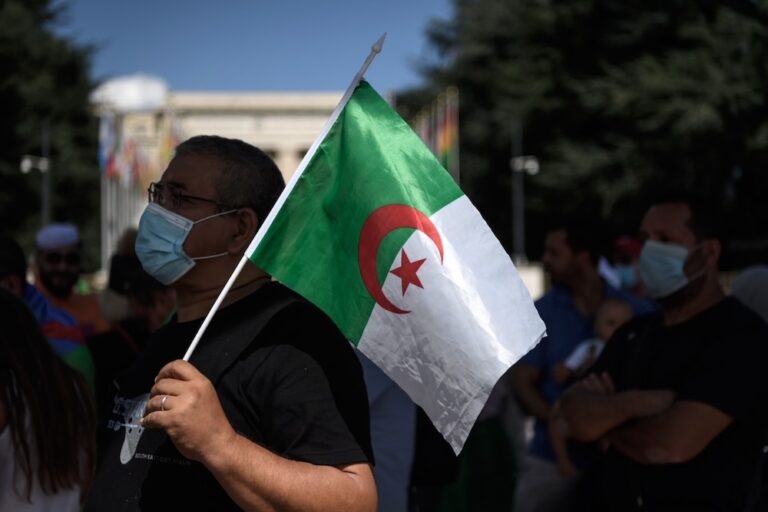Over the next four weeks the UN’s top human rights body is expected to act on some of the world’s most pressing freedom of expression violations and abuses.
This statement was originally published on article19.org on 26 February 2018.
Today, 26 February, the UN Human Rights Council begins its 37th Session (HRC37) in Geneva – over the next four weeks the UN’s top human rights body is expected to act on some of the world’s most pressing freedom of expression violations and abuses.
The agenda is tightly packed: this Session kicks off with the UN Secretary General and high level representatives of the world’s governments setting out their visions for human rights in 2017.
HRC37 will see debate on numerous OHCHR and Special Rapporteur reports related to freedom of expression, and will culminate on 22 and 23 March with the adoption of resolutions committing States to act against human rights violations and abuses, including of the right to freedom of expression.
The HRC has a new membership going into the March session, including some of the world’s worst violators of the right to freedom of expression. It is therefore essential that other countries step up.
ARTICLE 19 will be present throughout the Session to advocate for progressive free expression standards, and action on serious violations of this right, to hold States to account where they are failing to live up to their obligations and commitments.
Our priorities for HRC37 are:
- Accountability for freedom of expression violations in Turkey, Myanmar, Iran, Eritrea, and South Sudan;
- Pushing for implementation of States’ commitments on freedom of religion or belief, and on combatting religious intolerance;
- Advocating for an end to perpetual “states of emergency” abused to target freedom of expression;
- The renewal of the Special Rapporteur on the right to privacy mandate, and the appointment of a new Special Rapporteur on freedom of assembly and association.
ARTICLE 19 also will engage for the first time with the UN Committee on Economic, Social and Cultural Rights, to address attacks on journalists and restrictions on access to information in Mexico.
Scrutiny on Country Situations
It is essential that the Council delivers on its mandate to bring about meaningful change to human rights situations at the national level. While some countries regularly appear on the HRC’s agenda, politics often means silence on other serious human rights violations. ARTICLE 19 will be advocating to put Turkey on the agenda of HRC37, and push for strong responses to crises in Myanmar, Iran, Eritrea, and South Sudan.
Downward spiral on free expression in Turkey
Turkey has continued a downward spiral on freedom of expression under a state of emergency has remained in effect since an attempted coup in July 2016.
Even though more than 90 countries sponsored a September 2016 HRC resolution calling on States to release arbitrarily detained journalists, depressingly few States have reacted to developments in Turkey by condemning the country’s rise to being the world’s largest jailor of journalists.
The life sentences handed down to three journalists on 16 February, in defiance of a ruling of Turkey’s Constitutional Court, must trigger a response from States that claim to care about freedom of expression and media freedom. Ahmet Altan, Mehmet Altan and Nazli Ilicak must be released, along with more than 110 other journalists currently behind bars.
A reaction from the HRC would send a clear signal to the government of Turkey. It would come ahead of the UN Special Rapporteur on freedom of expression’s presentation of his country visit report to the HRC in June 2018, and alongside recent allegations from the mandate that must be answered.
Turkey will be a focus of a number of ARTICLE 19 interventions at HRC37, and feature prominently in our event on abuses of “states of emergency” on 2 March.
Human rights crisis in Myanmar
The human rights crisis in Myanmar is high on the HRC’s agenda, with both the UN Special Rapporteur on the country situation, and the Independent International Fact Finding Mission to address States on 12 March.
We’ve set out our concerns on the increasingly alarming situation for freedom of expression in the country in a new briefing, including the criminalisation of online dissent, restrictions on reporting in conflict-affected areas, the targeting of journalists through attacks and criminal charges, stalled legal reforms, violations of the right to protest, and failures by the government to address or condemn the growing problem of “hate speech” targeting religious and ethnic groups.
It is clear that the NLD-led government has not made progress on any of the calls for action to protect freedom of expression in HRC Resolution 34/22, adopted in March 2017. Violations of this right, within and outside of conflict-affected areas, as well as online, will only perpetuate ongoing conflict and insecurity in the country.
ARTICLE 19 will be advocating for the EU-led resolution on Myanmar to more comprehensively address the freedom of expression situation in the country, and be calling on all States to support the renewal of the Special Rapporteur mandate.
We will also be discussing the work of civil society to counter “hate speech” in Myanmar at our event on 6 March.
Crackdown on dissent in Iran
As we mourn the passing of Special Rapporteur Asma Jahangir, we will be calling for States to raise freedom of expression concerns in Iran at HRC37, as the search for her successor begins.
Our latest briefing demonstrates that it is more important than ever to increase support for the resolution at HRC37 renewing the Special Rapporteur mandate on Iran.
Recent attacks on and killings of protesters, Internet shutdowns, repression of environment and women human rights defenders, threats to media freedom, and targeting of religious minorities, all underscore why HRC member states must vote in favour of this resolution to ensure continued monitoring and accountability for these violations.
We are urging HRC Member States that have previously voted “no” or “abstain” on Iran resolutions at the UN to throw their full support behind the resolution.
For further information on other priorities read the full statement on ARTICLE 19’s site.



